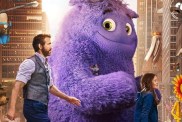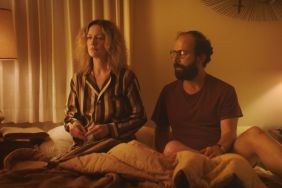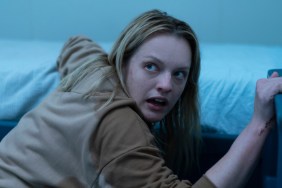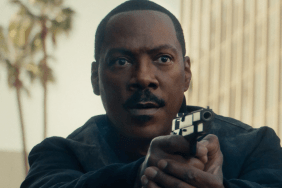
500 Days of Summer enjoyed an impressive wave of positive buzz before it even had its first official screening prior to debuting at the Sundance Film Festival earlier this year. Starring Joseph Gordon-Levitt and Zooey Deschanel the film deviates from your traditional romantic comedy, grounds itself in reality and finds a way to connect to its audience in ways most films of this ilk seem either afraid or unwilling to dare.
At the helm is first time feature film director Marc Webb who created a name for himself in the music video world, and if 500 Days is any indication this won’t be the last we hear from him as he is already lining up future projects.
I had a chance to sit down with Marc in Seattle earlier this year as 500 Days of Summer made its way to the Seattle International Film Festival and discuss the origins of the film, his stars and even drill down to the specific details in filming a pivotal scene in the film. After the interview was over I wasn’t quite sure if I had come out with much, but after transcribing it, I am quite fond of where things went, particularly Marc’s honesty. I hope you enjoy our conversation:
This is your first major feature film. How has the ride been?
Marc Webb (MW): It’s been awesome. It’s been really, really fun. I think people are liking the movie and to go out in the world and travel with something you are actually proud of and have enjoyed making is a really great thing. I did music videos for eight or nine years and I just worked like a mad dog and not everything I did I was proud of. So to have this and work with a bunch of people I really liked and spent a lot of time doing is good and the fact people are interested and enjoying it on some level is good. Not everybody liked it, but it’s fun.
That’s got to help the process, because I remember when it was heading into Sundance there was already a buzz about it, but I hadn’t heard of any test screenings or anything that would have really created that buzz. What was it?
MW: I don’t know, maybe Joe and Zooey, because they had a certain cred. We did do two test screenings beforehand so the rogue sort of review that got posted was very positive and I think that probably helped. I don’t know, I think people liked the script too and knew about the script.
You mentioned there were only two test screenings, and I wanted to talk to you about the narrative of the film. You use a storytelling device breaking up the chronological flow of the narrative and just as the film started I was thinking it could become a problem if the movie ran too long. It’s a device that could weigh on the audience if it became too much or if the film ran too long. Were the test screenings longer? Because I think it ended at a perfect length and never ran into that problem.
MW: Our first sort of rough draft of the movie was maybe 104 minutes without credits and it was just too long. There was a redundancy in terms of — there was a “worst morning ever” sequence that was an analog, it was an opposite parenthetical to the “best morning” where the cartoon bird shits on Joe and it was sort of funny, but it was also redundant. We already knew he was feeling shitty because we had done that in the foreign film sequence. I was just on a mission to cut out whatever wasn’t necessary. “When in doubt cut it out,” was my philosophy. You can only ask the audience for so much of their time.
At the beginning of the film a woman’s name is mentioned…
MW: Jenny Beckman
Was that something of yours or did the writers bring that to the table?
MW: It’s a pseudonym. Whatever you do, don’t “friend” Jenny Beckman on Facebook. The writers wrote that and we actually had to get legal clearance to use “Jenny Beckman,” but it’s a pseudonym. But is it based in reality? Yes.
Considering this isn’t your script, but it’s one we can all relate to in some way or another, how much of your life came into the story? Any, or was it all the screenwriters and you were left to tell the story?
MW: In truth, it’s based on Scott’s [life]… Scott had two relationships. He wrote a draft of the script after the first and the second one sort of crystallized these things and he finished the actual draft of the script. The soul of the movie comes from that, his experiences, absolutely.
Then we worked on the script for about a year, trying to do different things and messing around and there are some experiences and moments from my life, but the base was definitely Scott’s and Webber’s experiences. Then we found what would be good for the movie and invented a few things, but one of the strengths of the movie is that it comes from something real. We’re not trying to fit a form as much as we were trying to express our own experiences through a form.
Yeah, and to that point, I was going to ask you what genre you actually think this movie fits in even though I know directors hate to pigeonhole their films…
MW: Yeah, but it’s a coming-of-age story masking as a romantic comedy.
Yeah, but there is a separation as it remains grounded in reality.
MW: Yeah, typical romantic comedies tend to rely on some sort of high concept deceit. He likes cats. She likes dogs. How are they ever going to get along? You have that wedge dividing the two, but what I thought was interesting about this script was it eliminated high concept division and was just a simple philosophical shift. We all know people are on both sides of that, and how does that work? There’s enough drama in two people getting along that you can rely on that, enough tension without having to insert something nutty.

I also think the film benefits greatly from the casting of Joseph and Zooey, who aren’t A-list actors, but they are credible and recognizable quality actors. Were they the first two choices? Were they brought to you? How’s that happen?
MW: I met with a lot of actors and actresses and they were at the top of the list, but it was tricky because if you’re going to make a movie on a $7.5 million budget there are concerns of how they more credibly marketable in foreign territories or whatever… I don’t even understand the calculus of that, but there’s a short list. Zooey probably had a little more status in terms of that, but what made it doable was, like you said, there’s a credibility within the critical community for these actors, which is important. This movie was never going to get released the way The Hangover is. It was going to rely on reviews, word-of-mouth, that sort of thing so the fact you have some good will with these guys is important. In terms of their careers, you wouldn’t think of Joe as a romantic comedy lead, which made it interesting. Zooey has done a couple of romantic comedies, but —
But it was still Zooey and she brings something completely to a movie in my opinion.
MW: Yeah, she’s natural. She won’t do anything mannered. She wants to discover it and make it feel real and if it doesn’t feel real to her she won’t do it, and that’s a gift. Joe’s a little more technical, but he’s such a fucking great — he’s like a Swiss watch — he’s so good at communicating things physically. We cut out a lot of dialogue, because he would say it with his face. You just didn’t need that.
Adding to that, there was one major reason I wanted to actually interview you and I began hoping you were coming to town as soon as I saw one particular scene so I could discuss it with you. Tom and Summer leave a karaoke bar and stand opposite one another on the sidewalk for quite a while. You hold on that two-shot for a really, really long time and I assumed it was a handheld shot, because it seemed as if there was as much pressure on the camera as there was on the actors, which transfers directly onto the audience when there is a slight camera jitter that made it seem just perfect. I thought it was an excellent use of the camera to tell your story.
MW: Yes, that was one of the only sequences we used a handheld. That’s a really important scene for a lot of reasons. It’s relatable first of all, secondly it’s verbatim taken from Scott’s life. That scene actually happened outside of a bar. It’s totally true… Documentary. We could get sued for plagiarism by that girl.
The other part of that, at the end of the scene there was a line we actually cut out where Tom was like, “Friends. Great. That’s bullshit.” It was written, but you see that in his face and it’s an example of how we stripped it down. His face says all you need to say.
That’s also the moment where if you were a man, if you were not a boy, he would have fucking kissed her. You know what I mean? Like fucking man up! And she is teasing him. She’s like wanting it, but he doesn’t know how to play it right and he’s afraid to ask her out, which at the end of the movie he can ask a girl out and he puts himself out there. At the beginning of the movie he doesn’t do that, he waits for something to happen to him. He thinks the universe is going to orchestrate this thing and he’s not going to put himself out there and at the end of the movie he asks the girl out.
And that whole scene was shot on handheld because we thought, they’re getting drunk and the whole movie is visualized through Tom and that’s part of being in his headspace and part of that moment is him being like Wow, I’m really into this girl. So, the “jitter” you refer to wasn’t designed, but the environment from which that came out was intentional.

MW: Yeah.
That seems so interesting considering that’s quite a departure from this film, which is your first film, and is that the direction you want to take your career?
MW: You never know, but probably not. I always admire filmmakers that constantly reinvent themselves and submit themselves to different genres. Because I don’t want to do — well, I may do another romance for my next movie, I don’t know, honestly — but I like the idea of being schizophrenic, that’s what I did with my music videos, which was a lot of fun. I think you lose something if you repeat yourself too much, but I guess if you want to perfect yourself with one genre that makes sense too.
Do you want to go to the Hollywood blockbuster style?
MW: To me it doesn’t matter, blockbuster or small movie, that shouldn’t be the criteria. It’s whether it’s good or bad, because I think there are movies, like Pirates of the Caribbean – the first one — I thought was really an interesting movie about being true to your blood. It was saying very interesting things in a very pop way, and that I find very compelling. I’m a huge fan of popular movies if they’re done well and I think you can say a lot in those bigger movies and I think independent cinema in the past few years has had a huge impact on the complexity of bigger movies. The Dark Knight is definitely a great example of that.
So, it’s not the size of the movie. Whether or not The A-Team is going to be a good movie or not I have no idea, but I wouldn’t discard it out of hand. Now, I don’t have a personal investment in watching that movie, but I always thought it was funny they were so adamant [about us not using the theme song]. We were going to hum it and it’ll put it into the zeitgeist and they were like, “Nah.”
But the music for this movie was really tricky. Some people were giving us some flack, and they were like, “Why don’t they use something like Flo Rida,” or they would talk about The Hangover using Flo Rida and that would be like our entire music budget. It just wasn’t feasible.
500 Days of Summer is in theaters now. For more information on the film click here. You can also read my review of the film here.









